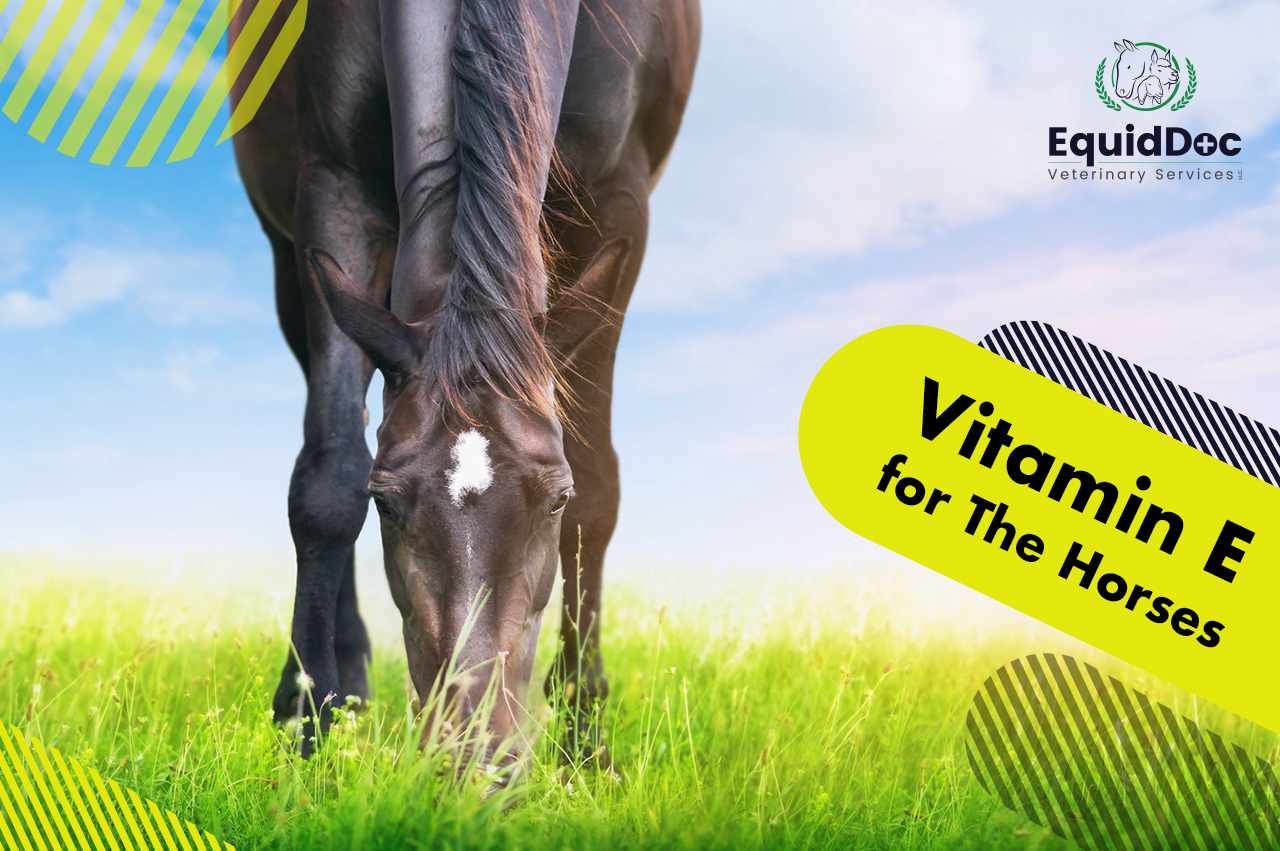“Vitamin E” refers to a group of several fat-soluble compounds that function as antioxidants, most importantly in the neuromuscular system. In horses, we focus on alpha-tocopherol for which the minimum dietary requirement for maintenance is 500 IU (International Units) per day for an average sized horse. However, horses that have increased metabolic rates (i.e. performing intense exercise, breeding, fighting chronic disease, etc.) or gastrointestinal disorders, may need much higher levels of alpha tocopherol in their diet to avoid deficiency. Natural dietary sources include green grass and fresh hay. Most commercial grain products also provide maintenance levels of vitamin E if fed as recommended on the grain bag.
Clinical Symptoms & Testing:
Horses can become Vitamin E deficient due to increased metabolic demands (as listed above), poor nutrient absorption, limited access to green grass, and poor hay quality. Depending on the severity and duration of the deficiency and the age of the horse, signs of vitamin E deficiency can range from muscle weakness to severe neurologic deficits. Owners and riders may notice a lack of muscle gain or uneven muscling despite being in work, frequent tripping or stumbling, and lethargy. Severe neurologic deficits can present as unsteadiness (ataxia) in all limbs, muscle wasting, gait abnormalities and odd posture. Horses with severe neurologic deficits should be handled by experienced personnel only as they can be dangerous.
Fall is a good time to test vitamin E levels in your horse to ensure adequate serum levels before the winter. Blood levels of vitamin E dip in late winter and early spring since horses have not had green grass for months and vitamin E levels in the hay have decreased since it was harvested. Testing prior to supplementation is important for horses showing signs of vitamin E deficiency for determining what disease process is occurring and therefore the proper supplementation program. Testing requires only a simple blood sample.
Effective Supplementation:
Vitamin E supplementation in horses is best accomplished with natural-source vitamin E rather than synthetic-source vitamin E. Natural-source vitamin E is better absorbed by the horse than synthetic forms and can be added to the diet as either a powder or water-soluble liquid. The water-soluble liquid is twice as bioavailable (best absorbed) as the natural-source powder, allowing the blood levels to rise quickly. To establish and maintain appropriate blood levels of vitamin E, we use a combination of both the liquid and powder supplements. The exact time frame for treatment will vary depending on each individual horse, and blood levels are typically re-tested after 3 months of supplementation to further guide treatment.
Contact your EquidDoc veterinarians today to discuss testing and supplementation!


